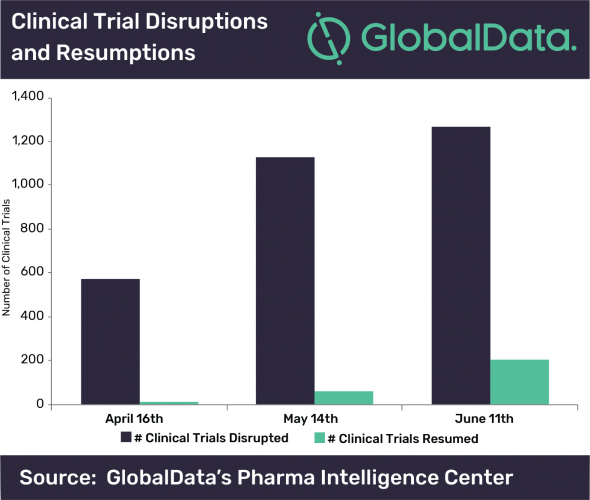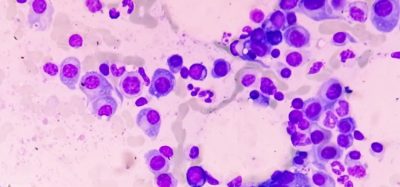Clinical trial disruption from COVID-19 beginning to lessen, says report
Posted: 19 June 2020 | Victoria Rees (European Pharmaceutical Review) | No comments yet
New findings reveal that the 200 clinical trials impacted and delayed by COVID-19 are now continuing or have completed their course.


New research has found that over 200 trials which were previously disrupted from the COVID-19 pandemic by delayed initiation and slow or suspended enrolment are now ongoing or completed.
According to Globaldata, this represents a 3.2-times increase compared to last month. This upward trend for clinical trial delays may begin to slow further as more companies adjust to conducting clinical trials during COVID-19, along with a possible shift toward virtual trials.
Brooke Wilson, Associate Director of Trials Intelligence at GlobalData, commented: “The number of disrupted clinical trials and organisations has continued to grow over the last three months. This trend is most noticeable between April and May, but has begun to slow. Suspension of enrolment accounted for 61.5 percent of the disruptions. Over all three months, 14 percent of the disrupted clinical trials are specifically pivotal/registrational, giving an indication that there will be an impact on regulatory approvals in the future.”


“Many hospitals that serve as trial sites were inundated with COVID-19 patients and are no longer available. For that same reason, many investigators may be repurposed to COVID-19 drug discovery trials or treating COVID-19 patients, or activation of sites for non-COVID-19 trials are being de-prioritised. There is also a high risk to subjects in a clinical trial who have a serious chronic or acute condition that affects their immune system, giving them a greater chance of contracting COVID-19,” Wilson continued. “The FDA has issued guidance for industry, investigators and institutional review boards on conducting clinical trials during the COVID-19 pandemic. Methods that could help keep the research going include virtual visits, phone interviews, self-administration and remote monitoring. These suggestions could help trials that are being met with subject quarantine and travel limitations, clinical site closures and interrupted supply chains.”
Related topics
Clinical Development, Clinical Trials, Drug Development, Research & Development (R&D), Viruses









